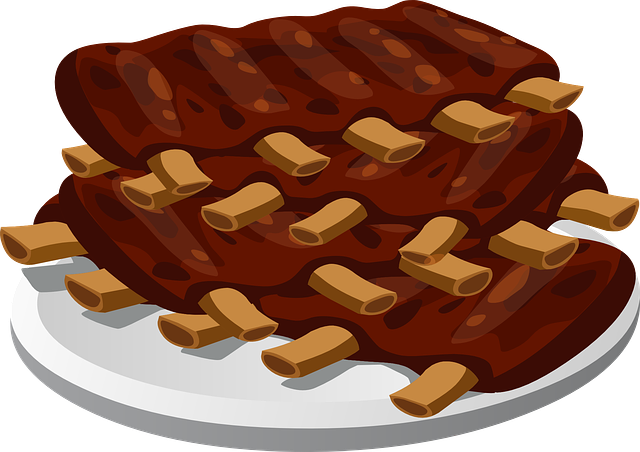The Carnivore Diet is a revolutionary approach to health and wellness that has gained popularity in recent years. This diet involves consuming only animal products, such as meat, fish, and eggs, while eliminating all plant-based foods. While this may seem extreme to some, proponents of the Carnivore Diet claim that it can lead to numerous health benefits, including improved digestion, increased energy levels, and weight loss.
What is the Carnivore Diet?
 The Carnivore Diet is a dietary approach that involves consuming only animal products and eliminating all plant-based foods. This means that followers of the diet eat meat, fish, eggs, and dairy products, but do not consume any fruits, vegetables, grains, or legumes.
The Carnivore Diet is a dietary approach that involves consuming only animal products and eliminating all plant-based foods. This means that followers of the diet eat meat, fish, eggs, and dairy products, but do not consume any fruits, vegetables, grains, or legumes.
The history of the Carnivore Diet can be traced back to the early 1900s when Vilhjalmur Stefansson, an Arctic explorer and anthropologist, lived with the Inuit people in Canada for several years. During this time, he observed that the Inuit people consumed a diet consisting almost entirely of animal products and were in excellent health.
Benefits of the Carnivore Diet
Proponents of the Carnivore Diet claim that it can lead to numerous health benefits. Some of these benefits include improved digestion, increased energy levels, weight loss, reduced inflammation, improved mental clarity, and better sleep.
Improved digestion is one of the most commonly reported benefits of the Carnivore Diet. Many people who follow this diet report relief from digestive issues such as bloating, gas, and constipation.
Increased energy levels are another benefit of the Carnivore Diet. Since animal products are high in protein and fat, they provide sustained energy throughout the day without causing blood sugar spikes and crashes.
Weight loss is also a common benefit of the Carnivore Diet. Since this diet eliminates all carbohydrates and focuses on protein and fat intake instead, it can lead to weight loss for many people.
Reduced inflammation is another benefit of the Carnivore Diet. Since this diet eliminates all plant-based foods, which can be inflammatory for some people, it can lead to a reduction in inflammation throughout the body.
Improved mental clarity and better sleep are also reported benefits of the Carnivore Diet. Many people who follow this diet report feeling more focused and alert, as well as experiencing better quality sleep.
Potential Risks of the Carnivore Diet
While the Carnivore Diet may have some benefits, there are also potential risks associated with this dietary approach. Some of these risks include nutrient deficiencies, an increased risk of heart disease and cancer, and difficulty sticking to the diet long-term.
One of the biggest risks associated with the Carnivore Diet is nutrient deficiencies. Since this diet eliminates all plant-based foods, it can be difficult to get enough vitamins and minerals that are typically found in fruits and vegetables.
Another potential risk of the Carnivore Diet is an increased risk of heart disease and cancer. Since this diet is high in saturated fat and cholesterol, it may increase the risk of these diseases for some people.
Difficulty sticking to the diet long-term is also a potential risk of the Carnivore Diet. Since this diet is so restrictive, it can be difficult to maintain over time, which may lead to weight gain or other health issues.
How to Get Started on the Carnivore Diet
If you’re interested in trying the Carnivore Diet, it’s important to consult with a healthcare professional first. They can help you determine if this dietary approach is right for you and provide guidance on how to get started.
It’s also important to gradually transition to the diet rather than making drastic changes all at once. This will help your body adjust to the new way of eating and reduce any potential side effects.
Keeping track of your progress is also important when starting the Carnivore Diet. This can help you identify any changes in your health or well-being and make adjustments as needed.
Meal Ideas for the Carnivore Diet
If you’re following the Carnivore Diet, there are plenty of meal options to choose from. Here are some ideas for breakfast, lunch, dinner, and snacks:
Breakfast options:
– Scrambled eggs with bacon
– Steak and eggs
– Sausage patties
Lunch options:
– Grilled chicken breast
– Tuna salad with mayonnaise
– Beef jerky
Dinner options:
– Grilled steak
– Baked salmon
– Roasted chicken thighs
Snack options:
– Hard-boiled eggs
– Beef sticks
– Cheese cubes
Tips for Sticking to the Carnivore Diet
Sticking to the Carnivore Diet can be challenging, but there are some tips that can help make it easier. Here are a few tips to consider:
Meal prep: Preparing meals in advance can help ensure that you always have something to eat that fits within the guidelines of the diet.
Find support from others on the diet: Joining a community of people who follow the Carnivore Diet can provide support and motivation to stick with it.
Experiment with different recipes: Trying new recipes can help keep things interesting and prevent boredom with the diet.
Final Thoughts on the Carnivore Diet
The Carnivore Diet is a controversial dietary approach that has gained popularity in recent years. While it may have some benefits, there are also potential risks associated with this way of eating.
Before starting the Carnivore Diet, it’s important to do your own research and consult with a healthcare professional. They can help you determine if this dietary approach is right for you and provide guidance on how to get started.
Personal experience with the Carnivore Diet can vary, so it’s important to listen to your body and make adjustments as needed. With the right approach, the Carnivore Diet may be a viable option for some people looking to improve their health and well-being.









